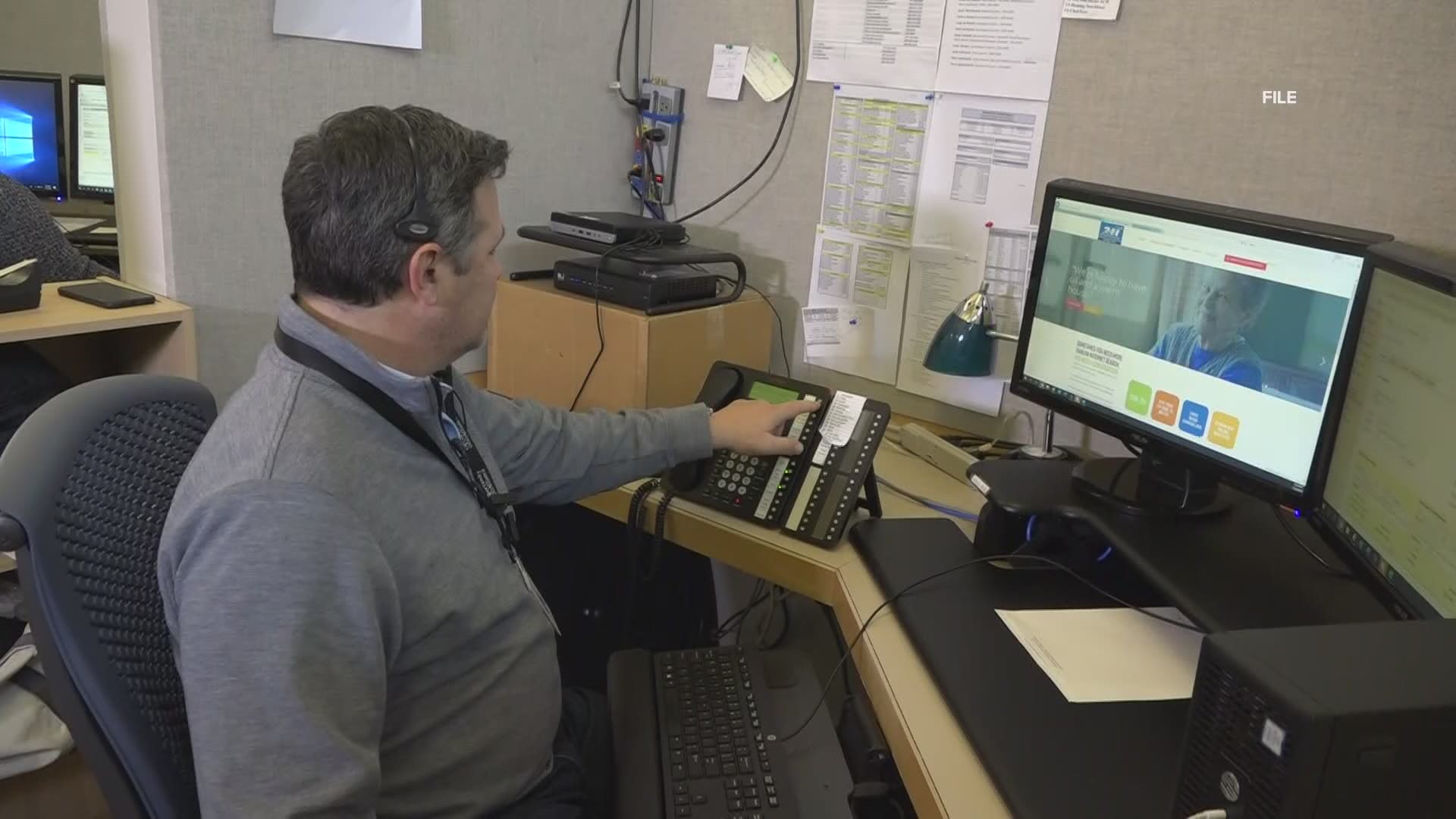PORTLAND, Maine — Across Maine, there are tens of thousands, possibly hundreds of thousands, of people who have a hard affording the fuel to heat their home. With cold weather finally here, with more people out of work and some businesses struggling, more calls are coming into 211.
“Most of the time, even if they’re in good spirits, you can kind of hear a panic in their voice, because no one wants to run out of fuel especially when it's cold,” Coral Howe, a 211 call specialist, said.
She is one member of the team that fields calls for a number of needs. This time of year, help filling the fuel tank is high on the list.
“People that have never really searched out for assistance are now having to do so,” Coral told NEWS CENTER Maine.
She said the pandemic, which has hurt a number of businesses and put too many people out of work, is a major cause for the increased need for fuel assistance.
She said some of those callers are ashamed or embarrassed about needing to ask for help -- a feeling, Coral said, she tries to discourage.
“I don’t think people understand how reaching out for help doesn’t necessarily say anything about you as a person. I think some people believe they’re taking money out of other people’s pockets when they ask for help and that’s not the case at all.”
211 offers callers connections to whatever form of assistance can work. Sometimes it's a call to their town office, or a local fuel assistance program. In many cases, the help comes through the United Way, partnered with a regional Community Action program.
At this time of year, Coral said the calls keep coming, and she hears more than a few sad stories.
“With some of the people, I don’t want to say, 'Here’s a phone number.' I just want to say, 'Hey, what’s your bank account? Let me send something over really quick.' I don’t think people understand the impressions they leave on people in my position, but they do.”
The people at 211 say it's their job to find ways to help, and that people having a hard time, people in need, should not feel bad about having to ask for help. They say it's part of a long Maine tradition of neighbors looking out for one another.

